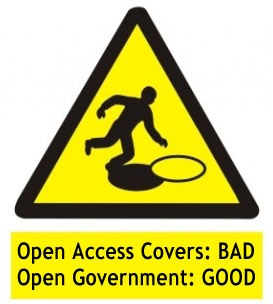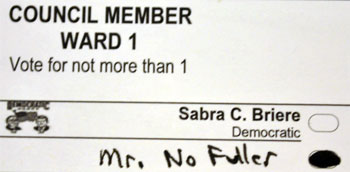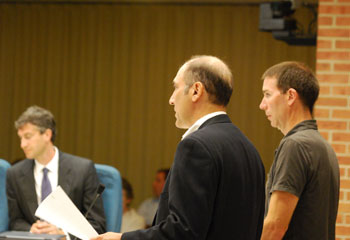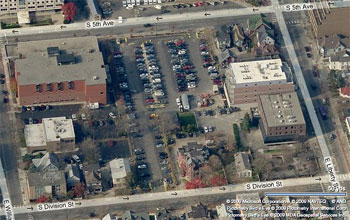As part of an ongoing study of Ann Arbor’s sanitary sewer system during wet weather, a public meeting will take place next Thursday, Feb. 6, from 6:30-8:30 p.m. in the Slauson Middle School auditorium. At that meeting, an update will be presented on the study. Also to be discussed at the meeting are results of a recent survey of participants in the city’s footing drain disconnection program.

Government should not be like an open sewer, but it should be open.
Fact: In local government, it doesn’t get any sexier than sanitary sewers.
The study’s full name is the sanitary sewer wet weather evaluation (SSWWE). As background reading, in preparation for next Thursday’s meeting, readers might find it useful to immerse themselves in this recent Chronicle report: “Backups: Lawyers, Sewers, Pumps.” That report is centered on a Jan. 9, 2014 meeting of the city’s citizens advisory committee (SSWWE-CAC) associated with the study.
But this column does not dwell on the substance of either the Jan. 9 or the Feb. 6 meetings. Instead, it focuses on the nature of meetings and expectations of Ann Arbor residents for local governmental activity: Government shouldn’t be like an open sewer, but it should be open.
First, meetings that are accessible to the public – like the one earlier this month or the one next Thursday – are a part of the fundamental standard set by Ann Arbor residents for the function of our local government. Ann Arbor residents don’t consider the convening of a publicly accessible meeting, with data and information available beforehand, to be some kind of bonus, value-added feature of our local governance. It’s just axiomatic.
Of course, Ann Arbor residents don’t have a monopoly in Michigan on an expectation of open government. Two state statutes ensconce a statewide commitment to open government – the Open Meetings Act (OMA) and the Freedom of Information Act (FOIA). From the OMA: “All meetings of a public body shall be open to the public and shall be held in a place available to the general public.”
But a group like the SSWWE-CAC is not, strictly speaking, a “public body” as defined in the statute. So in Ann Arbor, we take the OMA a step further. By longstanding city policy established through a city council resolution passed in 1991, even advisory groups like the SSWWE-CAC are expected (to the best of their abilities) to conduct their meetings in accordance with the OMA.
I’ve written a lot about this topic in the past, and don’t really have much to add now.
What prompted me to write this column, more as a reminder than anything else, was seeing a note sent to SSWWE-CAC members via Basecamp – a piece of project management software that allows group collaboration and communication. The note was sent by one of the city’s outside consultants for the sanitary sewer wet weather evaluation – Charlie Fleetham of Project Innovations.
Fleetham’s note included the following statement about the Basecamp site that’s been set up for the SSWWE-CAC: “… I believe that the CAC is and would be well served by having a site [Basecamp] to discuss this very complex and emotional issue without fear of public scrutiny.”
While I think that Fleetham’s sentiment was likely well-intended, public scrutiny is part of what Ann Arbor residents sign up for when they serve on one of the city’s citizens committees. This kind of service makes a resident a participant in a quintessential governmental function. As such, that service should be and will be subjected to public scrutiny. [Full Story]








